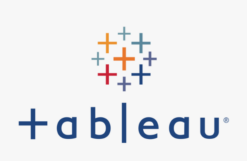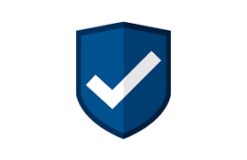Duration: 2 days – 14 hrs.
Overview
This intensive 2-day course is designed to equip professionals with the knowledge, skills, and methodologies needed to lead successful BPR initiatives within their organizations. BPR is a strategic approach aimed at radically redesigning business processes to achieve significant improvements in performance, efficiency, and effectiveness.
Throughout the course, participants will delve into the fundamental concepts of BPR, including process identification, analysis, and redesign, as well as change management and performance measurement.
Practical tools and techniques will be explored, enabling participants to identify processes ripe for re-engineering, develop a clear vision and goals for BPR initiatives, and implement sustainable changes.
With a focus on real-world application, participants will engage in interactive discussions, case studies, and hands-on exercises to deepen their understanding and hone their skills in BPR. By the end of the course, participants will be equipped to lead BPR projects from inception to implementation, driving transformative change and delivering tangible results for their organizations.
Objectives
- Understand the principles and concepts of Business Process Reengineering (BPR)
- Identify and analyze processes suitable for re-engineering
- Develop a vision and goals for BPR initiatives
- Implement BPR initiatives effectively
- Evaluate and sustain improvements achieved through BPR
Audience
- Business Analysts: Individuals responsible for analyzing and understanding business processes to identify areas for improvement.
- Process Improvement Teams: Teams actively involved in enhancing organizational processes and workflows.
- Project Managers: Professionals overseeing projects that involve significant process changes within the organization.
- Senior Management and Executives: Leaders and decision-makers seeking a strategic understanding of how BPR can impact the organization’s overall performance.
- Operations Managers: Managers responsible for day-to-day operations interested in streamlining and optimizing processes.
- IT Professionals: IT specialists involved in implementing technological solutions to support process re-engineering efforts.
- Quality Assurance Professionals: Individuals focused on ensuring processes meet quality standards and are aligned with organizational goals.
- Human Resources (HR) Professionals: HR personnel involved in aligning human capital with streamlined business processes.
- Entrepreneurs and Business Owners: Small to large business owners seeking to enhance efficiency and competitiveness through process improvements.
- Continuous Improvement Practitioners: Professionals dedicated to driving continuous improvement initiatives within their organizations.
- Supply Chain and Logistics Professionals: Those involved in supply chain management and logistics, aiming to optimize their processes for better efficiency.
- Cross-functional Teams: Teams comprising members from various departments collaborating on process improvement initiatives.
- Change Management Practitioners: Individuals specializing in managing organizational change and transition during BPR implementations.
- Consultants and Advisors: External consultants and advisors providing expertise on BPR methodologies and best practices.
- Government Officials and Policy Makers: Public sector professionals interested in improving government processes and services.
- Academic and Research Professionals: Researchers and educators exploring BPR concepts and methodologies for academic and practical applications.
Pre- requisites
- Basic Understanding of Business Processes: Participants should have a fundamental knowledge of organizational workflows and processes.
- Familiarity with Business Operations: A basic understanding of how businesses operate and the interconnectedness of various departments.
- Experience in Project Management (Optional): While not mandatory, some familiarity with project management concepts can be beneficial.
- Basic Analytical Skills: Participants should possess basic analytical skills to assess and identify areas for process improvement.
- Openness to Change: A willingness to embrace and drive change within the organization.
- Interest in Efficiency and Optimization: Individuals interested in enhancing organizational efficiency and optimizing business processes.
- Cross-functional Collaboration (Optional): For participants from cross-functional teams, an understanding of collaboration across different departments is advantageous.
- Leadership or Decision-Making Roles (Optional): Individuals in leadership or decision-making roles may find the course particularly relevant for driving organizational change.
Course Content
Module 1: Introduction to BPR
- Definition and objectives of BPR.
- Historical context and evolution of BPR.
- Principles and characteristics of successful BPR initiatives.
Module 2: Process Identification and Analysis in BPR
- Techniques for identifying processes suitable for re-engineering.
- Analyzing current processes to identify inefficiencies and bottlenecks.
- Determining criteria for selecting processes for re-engineering.
Module 3: Visioning and Goal Setting in BPR
- Developing a vision for re-engineered processes aligned with organizational objectives.
- Setting clear and measurable goals for BPR initiatives.
- Communicating the vision and goals to stakeholders.
Module 4: Redesigning Processes in BPR
- Techniques for radical redesign of business processes.
- Eliminating non-value-added activities and simplifying processes.
- Leveraging technology and automation in process redesign.
Module 5: Change Management in BPR
- Understanding the impact of BPR on organizational structure and culture.
- Strategies for managing resistance to change.
- Communicating changes effectively and gaining buy-in from stakeholders.
Module 6: Implementation Planning and Execution
- Developing detailed implementation plans for BPR initiatives.
- Allocating resources and managing timelines.
- Monitoring progress and addressing challenges during implementation.
Module 7: Performance Measurement and Evaluation in BPR
- Establishing Key Performance Indicators (KPIs) for re-engineered processes.
- Monitoring and evaluating the performance of re-engineered processes.
- Adjusting based on performance feedback.
Module 8: Sustainability and Continuous Improvement in BPR
- Strategies for sustaining improvements achieved through BPR.
- Creating a culture of continuous improvement within the organization.
- Identifying opportunities for ongoing refinement and optimization of re-engineered processes.








